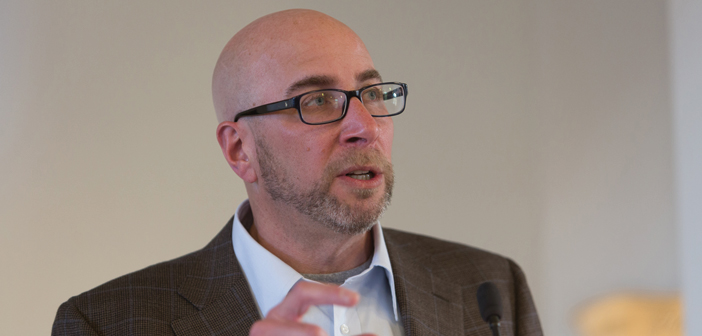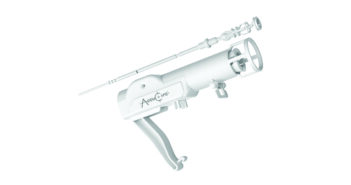Emergency physician Jay Baruch, MD, explores the complex realities of health care in this short story from his new fiction collection, What’s Left Out.
The physician sweeps a final, downcast eye over the body tucked between white sheets. Silver hair combed into a sharp part. Aftershave lingering in the lamplight. Stubborn traces of life that sting the physician. The man had plans that evening, had been well enough to care about style, the physician thinks, holding onto a deep, unsatisfying breath. Now he must call the next of kin. The only phone number belongs to the man’s sister. When she answers, he reveals only that her brother is in the emergency department and he’s critically ill. A chilled silence follows, but words are accumulating meaning, gaining a charge. The physician braces for a storm of grief. “I need to find a ride. The legs don’t work too good,” the sister finally says, unexpectedly calm.
The physician sighs sweet relief. “Take your time. We’ll wait.”
Nurses close off the room. The emergency department teems with life, making it a more charitable space for viewing the body than the sterile tranquility of the basement morgue. The physician scrambles to catch up with the many patients lost on his radar during the long code. He’s also haunted by the horde of people camping in the waiting room for a bed.
An hour later she calls back. “How is he?”
Deceit aches. The physician bites his tongue. The years have taught him that news of sudden death demands intimacy, awkward and ill fitting as it may be. Over the phone it can feel like bumping against a darkness where some objects are fragile and others wired with explosives.
“It would be easier if we can talk face to face,” he says.
“I’m on my way. Please tell him that?”
“Sure,” he says, rubbing beneath the sweat-stained neck of his scrub top. Manifesting a breezy tone is stressful when the very condition for the conversation is bad news, where words pass through a filter of self-doubt and second-guessing, grind against alternative treatments, even crazy ones; this is what the wounded ego feeds on in its efforts to pretend a better outcome and an easier discussion.
Another hour passes. “I just spoke to the sister,” says the social worker, his voice sinking. “No ride.”
“Seriously? She can’t call a cab?”
The social worker removes his glasses, blows fog to clean the lenses. “You have no other choice.”
The physician drops his chin to his chest, still tight from the failed resuscitation. Decisions weren’t so much made as options eliminated. “The code cart is empty,” a younger physician finally joked, “ no meds left,” which softened the strain and frustration in the nurses’ faces, but not by much. The code had gone on way too long, he knew that, but he couldn’t find that sense of an ending, recognize when enough is enough, or even worse, when enough is too much. Then he caught sight of the medical student lost in the brutish chore of chest compressions, sweat limping off his forehead and onto the patient. The student was exhausted, or maybe sick from the realization that the crunching beneath his thrusts were cracking ribs. “Breaking bones is part of CPR done well,” the physician told the student. “Hope and bruising often come in the same package.”
The physician calls back, breaks the news. He believes he can trace the sister’s tears by her gulping breaths. He even reaches for a box of tissues. A bystander might suspect he’s consoling the slow and outdated computer. “Again, I’m sorry for your loss.” The physician can’t figure out whether the sister needs space to cry or feels abandoned in anticipation for more details. Or maybe she hung up, disappointed and disrespected by his audacity. He had lied to her.
“Hello?” the physician says.
The clumsiness of the scene is complicated by the TV blasting in the background at her home.
“Hello?”
“My son isn’t very considerate,” the sister says.
An angry voice rips through the canned television laughter, tells her to be quiet. It belongs to a man who probably owns a car, the physician believes, or could steal one if he needed to.
“Can you hear me?” she says.
- “Health care has become surreal on its own and doesn’t need any help from fiction writers.”
Read more




